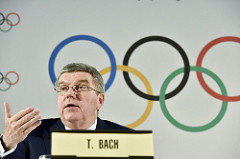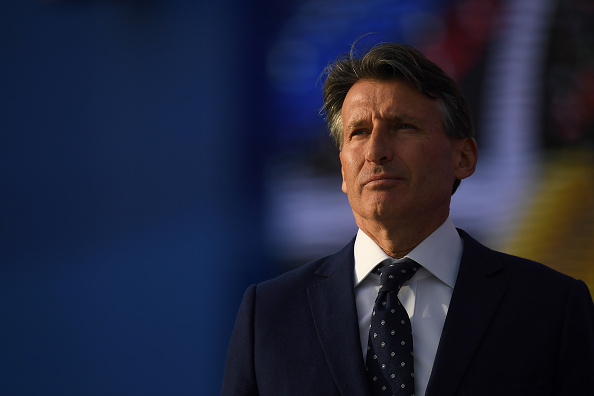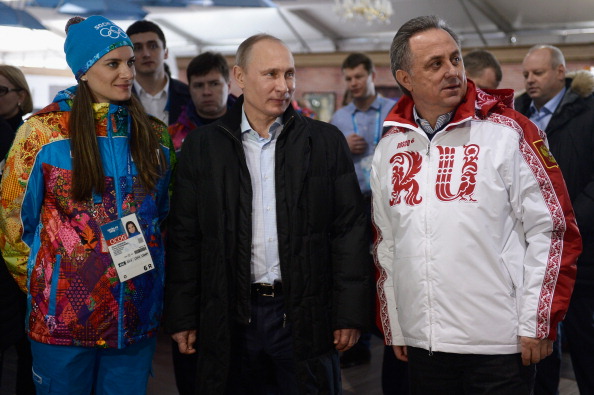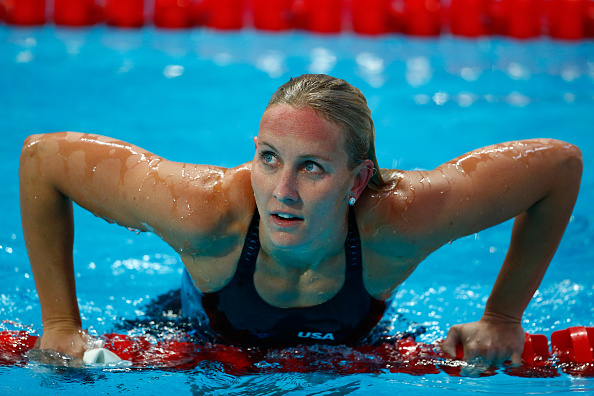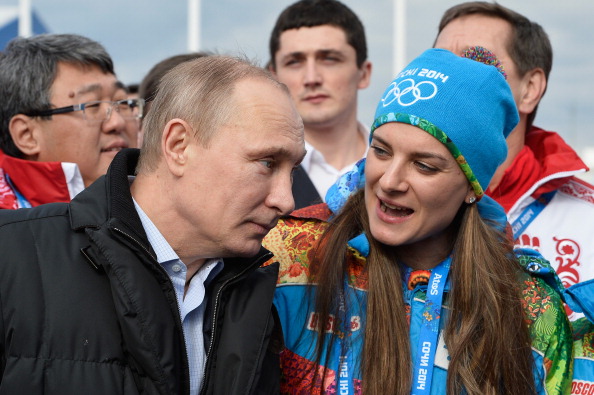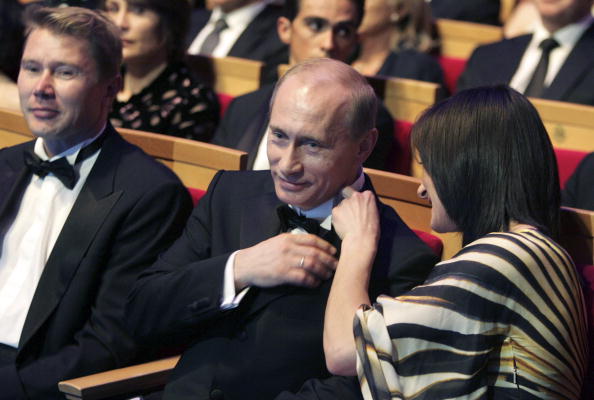PORTLAND, Ore. — For as long as anyone might remember, the mantra in track and field has been: well, that’s the way it has always been done.
The 2016 world indoor championships, which concluded Sunday after a four-day stand at the Oregon Convention Center, offered a different take. Here, it was: let’s try something new.
“Innovation,” Max Siegel, the chief executive officer of USA Track & Field, “doesn’t happen by accident.”
It’s a function, he emphasized, of collaboration and resource: “You have to have a deliberate plan. You have to plan to be innovative, and then when you come up with an innovative idea you have to have an effective plan to execute the idea.”
The track was green. With the house lights down, the athletes entered down a ramp as their names were called out, one by one. The medals were, for the most part, awarded not onsite but at a downtown square that had been turned into a live-music and party venue. During the championships, a (mostly rock) soundtrack kept the beat to what was what on the track and in the field (special shout-out to the excellent DJ who threw Bob Seger’s “Old Time Rock and Roll” out there during the men’s masters’ 800).


Did it all work? For sure not. A meet session should be two to two-and-a-half hours, max. Too often it went three-plus.
Did enough of it work, however, so that there’s reason, for the first time in a long time, to think that track and field at least stands a chance — again, a chance — of breaking out of its bubble and emerging over the next few years, particularly in the United States, as more than a niche sport?
For sure.
Even the highlight moment of the championships — Ashton Eaton bounding over in his warmups from the long jump pit to congratulate his wife, Brianne Theisen-Eaton, for winning the pentathlon — was, though thoroughly unscripted, at least allowed for.
Organizers timed it so that husband and wife would be on track at the same time.
“When you know you have these possibilities,” said Paul Hardy, competition director for track’s worldwide governing body, the International Assn. of Athletics Federations, “you start thinking about creating a timetable that allows for these special moments.”
He added a moment later, “That’s how we’re now looking at it — how we present the sport.”
He also said, “We need to introduce things. Hopefully they’ll work. If you don’t try anything, you never know if it works. If it doesn’t, you can try for the next time. if it does, hopefully we can improve it even more.”
Even friendly police
The vibe was so overwhelmingly positive in Portland that even the police proved smiling, friendly, accessible.
That, too, was by design.
“Community engagement,” as police nationwide like to call it, is “a huge priority for us right now,” Portland police Sgt. Greg Stewart, the department’s acting spokesman, said in a telephone interview.
“Nationally with the police — it really is a contentious time. Police and community relations are maybe not what they should be. The chief,” Larry O’Dea the city’s police chief for the past 16 months, “is really working to make sure that’s a focus for us.”
When the police are cool, anything’s possible. Even in track and field, right?
Some is just easy: the kiss-cam (or smile-cam, whatever), a staple at other major events? Why not?
But why not think really out of the box?
What about re-configuring the set-up so that, in the same way that fans sit court-side at an NBA game, they can sit immediately along the track?
At the Kentucky Derby, thousands of fans crowd the infield. It’s not because they know the life story of every one of those horses, or could remotely care. Absolutely there would have to be some re-thinking of how that might work in track, since the infield is literally where those field events are competed — but why not turn a track infield into the same kind of party zone?
“No idea is stupid,” Hardy said. “If you don’t get people to throw ideas around, you’re never going to get anywhere. We can take ideas from other sports. We can learn from people who follow the sport. We are definitely open.”
As Vin Lananna, president of TrackTown USA, the local organizers of Portland 2016, said, “You can’t be afraid to think big.”
He observed: “The best example is American football. How many real football fans know everything about football and go to the stadium to watch a football game? A lot of it is social.
“We don’t do it in track. We make it impossible. It’s long. It’s often boring. The announcers don’t relate. There’s no music.
“We’re getting there little by little,” he said of the 2016 world indoors. “This is a good start.”


These championships marked the first world championships with Seb Coe, elected last August, as IAAF president.
Coe, recognizing that track’s demographics trend older than younger, has preached relentlessly that the sport must innovate — in everything from presentation to social media.
“If you’re going to innovate,” Coe said, “a lot of it is going to work but you have to recognize that some of it is like the Paris fashions — not everything is angular, jagged, outrageous. Some of Paris fashion week is inevitably going to end up on a coat hanger in a retail store. But you do need to start somewhere.
“This for me is absolutely crucial: we must give federations, we must give organizing committees, permission to think out of the box and not sit there thinking, ‘I am going to look silly if it doesn’t come off.’ Because some of it is not going to come off.”
Part Two in a three-piece Oregon trilogy
These 2016 world indoors also made for the second act in a three-part Oregon world championship track and field trilogy keyed by TrackTown, in partnership with, among others, USATF. Understand, for instance, that these indoors don’t happen without the significant financial investment of USATF.
Part one: the 2014 world juniors in Eugene. Part two: Portland 2016. Part three: the 2021 world outdoor championships, back at a rebuilt Hayward Field.
There’s more: the 2016 U.S. Olympic Trials will be back at Hayward.
Plus the NCAA Division I track and field championships — they have been at Hayward the past two years, will be there this year (June 8-11), indeed will be there every year through at least 2021.
This summer is due to see the launch of the TrackTown summer series meets.
Little appreciated amid the first world indoor championships in the United States since 1987: the IAAF had to want to come. One of the reasons it did so: the IAAF meetings around the 2014 Eugene world juniors, thanks to the efforts of USATF chief operating officer Renee Washington, were arguably best-ever. A detail that might seem small but really isn’t, like the translation services — it was made a priority, not not an afterthought.
The IAAF noticed.
“There is no one person who can single-handedly take all these people stuck in the fact that [the sport] has been done a single way,” Siegel said, emphasizing, “It takes a collective effort of like-minded people to effect any vision.”
From the get-go, the point of emphasis from all involved was that the 2016 world indoors had to be more than simply a track meet.
The audacious goal was to stage “the best indoor meet ever held anywhere in the world,” Lananna said last Wednesday with the idea of sparking what Coe on Thursday called a “reawakening of track and field in this country.”
That kind of thing is, by definition, going to take time.
So an immediate verdict is, again by definition, all but impossible.
Attendance figures suggest, however, that something must have clicked — the OCC, capacity 7,000, was essentially sold out for all three night events, and even the Friday morning session, competing against an Oregon State NCAA March Madness basketball game on TV, drew 4,087.
On Saturday evening, demand was so intense that organizers added— thank you, Portland fire marshal for being so accommodating — temporary seats and allowed for standing-room only. The total: 7,173.
Sunday, much the same: 7,191. Friendly ticket “brokers” could be seen looking for business outside the convention center.
The four-day attendance total: 39,283.
A huge boost to the atmosphere: the U.S. team ended up with 23 medals overall. Runner-up Ethiopia had -- five. France, four. Nobody else had more than three.
The fundamental challenge
Putting aside doping and corruption issues, for which the sport has justifiably earned headlines in recent months and years, the fundamental challenge is easy to identify: track and field is arguably the only sport in which multiple events are going on simultaneously.
On Sunday, for example: the men’s long jump, women’s 5k and women’s high jump (won a few minutes later by U.S. teen sensation Vashti Cunningham) were all going on at exactly the same time.



How to best present or package that? Production, story-telling, engaging an audience — particularly newbies or casual fans?
At the same time, track and field is without question the most diverse, most global, sport anywhere anytime. It’s also fundamental. Virtually everyone, at some point, has done the run, jump or throw thing.
The 2016 championships drew roughly 500 athletes from more than 140 nations — roughly two-thirds of the countries in the world.
That’s the good.
The not-so: no Usain Bolt, Justin Gatlin, Allyson Felix, Mo Farah (though he did show up to watch), David Rudisha and, of course, given the status of the Russian team amid doping sanction, the pole vault diva Yelena Isinbayeva.





"Feels Like the First Time" -- thanks, Foreigner
The no-shows missed the transformation of the convention center in just 12 days to a world-class track and field venue.
And, beyond the rock soundtrack (Foreigner: “Feels Like the First Time” during the Friday men’s 1500 heats), a series of other major markers, many of which drew from a series of inspirations.
— The pole vault, men’s and women’s, as a by-themselves package on Thursday night, with hundreds of kids allowed onto the banked 200-meter track to watch.
Organizers were rewarded three times over. First: both winners were London 2012 Olympic gold medalists, the American Jenn Suhr and Renaud Lavillenie of France. Second: for the first time ever in the same competition, four women went over 4.80 meters, or 15 feet, 9 inches, Suhr winning in 4.90, 16-0 3/4. Third: Lavillenie, after setting a new indoor championships record on just his third jump, 6.02, 19-9, made three (unsuccessful) tries at a world record, 6.17, 20-2 3/4, electrifying the crowd.
The Lavillenie victory, moreover, provided emphatic evidence that, for all its challenges, track and field remains indisputably at the intersection of real-world politics and sport -- why it's so relevant in so many nations. French president Francois Hollande, on Friday posted to his Twitter account a message that read, in idiomatic English: "Congratulations to Renaud Lavillenie for his second world title! Here's to a great Olympic Games in Rio!"
In the manner of the pole-vault meet that now-IAAF vice president Sergey Bubka used to run in his hometown of Donetsk, Ukraine, stand-alone events would seem a key to the future of track and field.
USATF, for instance, made the hammer-throw at the 2012 U.S. Olympic Trials a signature event, held — before 5,000 people — at the Nike campus outside Portland. In 2014, the U.S. nationals saw the shot put go down on the California state capitol grounds.
Now: what about featuring that women’s high jump? On, say, the Vegas Strip? Or the Champs Élysées in Paris? Or the riverfront Bund in Shanghai?
— Those athlete entry ramps.
Swimming has long done the athlete intro big-time, with swimmers coming out from behind a partition to lights and music. Track tried that at the World Relays in the Bahamas in 2014, and again last year. Now, the ramps.
Another logistical (and time-saving) advantage: no stripping off the warm-ups in the lanes right before the start of a race.
Coe, noting that the indoor format lends itself more easily to experimentation, said, “Enough [new ideas have] come off here to make a big difference already.”
At the same time, as he noted, and this question about the ramps was rhetorical, not signaling an opinion, “Will that work on a Friday night in London when it’s 48 degrees?”
Norway’s Svein Arne Hansen, president of the European Athletics Assn., emphasizing that he, too, is a big proponent of trying something new, noted with a wry smile about turning down the house lights for athlete introductions: “I cannot turn down the lights at Bislett,” the annual summer stop in Oslo. “It’s sunlight.”
— A digitized scoreboard for the horizontal jumps.
You could see, not just have to imagine, what record a particular jumper might be going for. What a concept.
— Locals operating food trucks as an alternative to arena hot dogs. Voodoo Doughnuts!
— Uber as a sponsor, an example of integrating new, and cost-effective, technology.
Normally, an organizing committee has to find a car sponsor or rent a bunch of cars to create a dedicated carpool system. With Uber — Uber provided the carpool. If you wanted a ride — well, you know how Uber works.
— The make-over of Portland Courthouse Square downtown into the place for medals, music and more.
The nightly medals ceremonies focused on the athletes, a key for Lananna and Coe. Lananna said, “You take youth and connect them to their great heroes. That’s what it’s all about — that next generation.”
A clear logistical benefit to moving the ceremonies offsite: carving time out of the rundown at the track itself.
The offsite medals plaza has many roots — see the Salt Lake City 2002 Winter Games, for instance. Or the party vibe each summer at those Bislett Games in Oslo.
The vibe at the square: Portlandia from the start. At the opening news conference there last Thursday, Coe didn’t wear a tie, the first IAAF event in years at which the president did not wear a tie. Neither did Lananna. Nor Siegel.
Again, all quite deliberately.
“It has been a good event,” Hansen said Sunday as the championships came to a close. “The music. The atmosphere. Excellently organized.”
And, at least for four days, in a nod to the wave of doping and corruption headlines, he said, “We don’t talk about [the bad stuff] anymore.”


